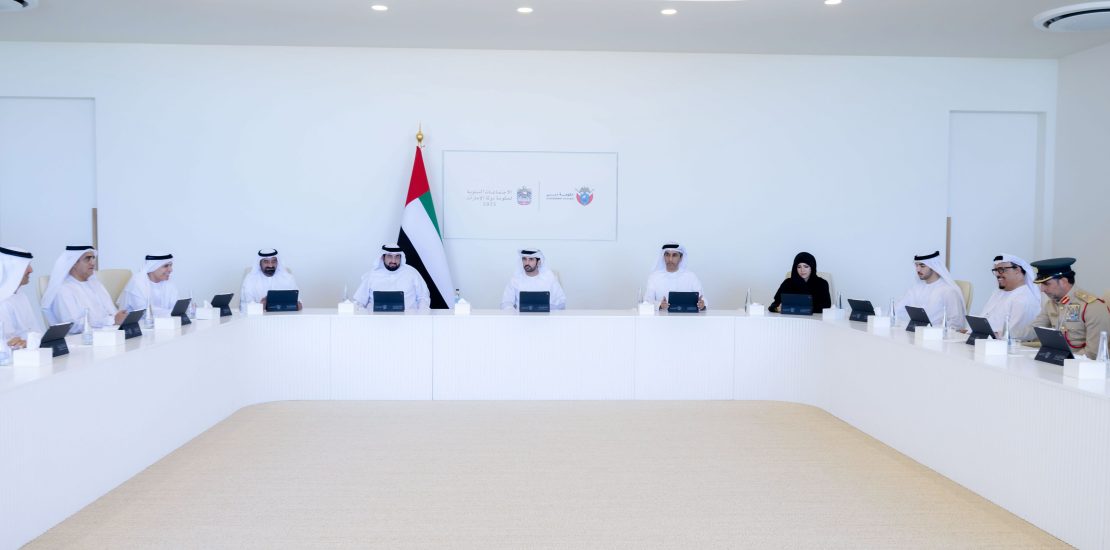- November 6, 2025
- Posted by: Waqas Siddiqui
- Category: Education

Dubai Education Market: Policy and Growth Initiative
Dubai’s announcement to build 60 new affordable schools by 2033 is reshaping the Dubai education market, signaling significant opportunities for both K–12 operators and higher education providers. The initiative follows approvals by Sheikh Hamdan bin Mohammed bin Rashid Al Maktoum, Crown Prince of Dubai, Deputy Prime Minister, Minister of Defence, and Chairman of The Executive Council of Dubai, who endorsed a series of major strategies to make Dubai the world’s most globally competitive city.
These approvals, announced during the UAE Annual Government Meetings 2025, underscore the Executive Council’s role in integrating federal and local government efforts to strengthen Dubai’s education ecosystem.
As a leading market research firm in UAE, Research Konnection analyzes how these initiatives are shaping the Dubai education market and creating strategic opportunities across both school and university sectors.
K–12 Education in Dubai: Current Scale and Growth
Dubai’s K–12 private education sector is well-established and continues to expand to meet rising demand. According to the Knowledge and Human Development Authority (KHDA), in the 2024–25 academic year there were 227 private schools serving approximately 387,441 students across 17 different curricula. These schools offer a mix of British, American, Indian, IB, and other international programs, catering to Dubai’s diverse expatriate and local population.
With Dubai’s population expected to reach 4 million by 2025, demand for quality K–12 education is set to increase significantly. The planned addition of 60 new affordable schools will increase capacity by roughly 120,000 seats, addressing both population growth and the rising need for mid-tier, cost-effective schooling. This expansion highlights opportunities for school operators to participate in a growing market segment while contributing to Dubai’s strategic goal of providing high-quality, accessible education.
Read: Key Consumer Trends in Dubai
Higher Education Ecosystem in the UAE
Dubai’s higher education sector is also experiencing strong growth, reinforcing the city’s position as a regional hub for international learning and research. KHDA data for the 2024–25 academic year reports 41 higher education institutions in Dubai, serving 42,026 students, reflecting a year-on-year growth of approximately 20%.
International branch campuses are playing a key role in attracting global students and offering world-class curricula. Academic programs increasingly emphasize STEM, data science, AI, and sustainability, aligning with national priorities for innovation and future workforce readiness.
The synergy between K–12 expansion and higher education growth creates a seamless education ecosystem, enabling students to transition smoothly from foundational learning to university-level specialization and preparing a highly skilled workforce for Dubai’s knowledge-based economy.
Government Vision Driving Dubai’s Education Growth
Dubai’s education sector expansion is strongly supported by national strategic frameworks:
- Dubai Economic Agenda (D33): Seeks to position Dubai among the world’s top three global cities by 2033, with education and human capital development as key enablers. The affordable-school initiative aligns with this vision by ensuring broader access to quality education.
- We the UAE 2031: Focuses on creating a knowledge-based economy with lifelong learning pathways. It emphasizes education quality, innovation, and accessibility across all levels, from schools to universities.
- UAE National Strategy for Artificial Intelligence 2031: Embeds AI into teaching and learning, equipping students with digital and AI-driven skills to succeed in a technology-driven economy.
Together, these policies create a coherent framework where K–12 and higher education initiatives complement each other, strengthening Dubai’s position as a global education hub and driving growth in the Dubai education market.
UAE Education Market Size and Key Trends
The UAE’s education market is experiencing solid growth, though exact market‑size estimates vary. A recent outlook estimates the UAE education market will grow by AED 18.7 billion (roughly USD 5.1 billion) by 2029, at a compound annual growth rate (CAGR) of around 8.6% from 2024‑2029. Key trends shaping this market include:
- Rising demand for mid‑tier and affordable K‑12 schools, driven by growing expatriate families and cost‑sensitive segments.
- Increasing adoption of AI and digital learning tools in both schools and universities, reflecting the wider push for innovation in education.
- Expanded focus on early‑childhood education and inclusive learning, as regulators emphasise access and diversity across the system.
- Growth in higher education programmes in the UAE focusing on STEM, AI, sustainability and global collaboration, supporting both local workforce needs and international student flows.
These trends collectively reflect a more integrated, lifelong‑learning approach to the Dubai education market, linking school education and higher education with future workforce readiness.
Impact of Dubai Education Market Growth on K–12 and Higher Education
Dubai’s affordable-school plan opens new opportunities in underserved areas where demand for quality, cost-effective education is high. Strategic considerations include location, curriculum offerings, and fee structures. For universities and higher-education providers, Dubai presents a growing market for international programs and specialized courses aligned with national economic and technological priorities.
Strategic Analysis for K–12 and Higher Education in the UAE
At Research Konnection, we provide data-driven insights to help K–12 operators, universities, and investors navigate the evolving UAE education market. We specialize in needs assessment studies for K–12 schools and universities, helping clients evaluate demand for new programs, curricula, or campuses
Contact us to discuss how we can support your K–12 or higher education initiatives.
 +971 50 145 6258 +971 56 245 3624
+971 50 145 6258 +971 56 245 3624
